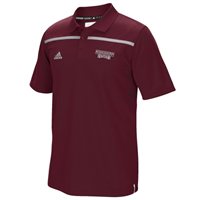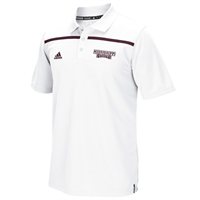Earlier this morning, Scott Stricklin sent out this tweet:
… any athlete found to be gambling on college sports (includes daily fantasy such as Draft Kings) automatically loses a year of eligibility.
— Scott Stricklin (@stricklinMSU) September 22, 2025
I saw some questions after his tweet, so I'll make a few quick points about it.
- Oliver Luck is basically the "second in command" behind NCAA president Mark Emmert. His title is "Executive Vice President of Regulatory Affairs", which means he is responsible for the day to day operations of the NCAA. The NCAA is against any gambling on college sports, so it isn't surprising that the penalty for violating the NCAA's policy on gambling would be harsh.
- In Stricklin's tweet, he refers to gambling on college sports. The actual rule is that athletes and athletic department employees can't gamble on any sport sponsored by the NCAA. For example, a football player can't bet on a professional tennis match, because tennis is an NCAA sponsored sport.
- If an athlete is eligible to win a prize, it is considered gambling. If an athlete can't win a prize, they haven't violated this NCAA policy. An athlete can play something such as fantasy football if the winner doesn't get a prize.
- Athletes are allowed to gamble on horseracing, because equestrian is considered to be different than horseracing.
- Athletic departments are indirectly funded by sites such as Draftkings and Fanduel. They pay ESPN to advertise, and ESPN pays athletic conferences for television rights to their games. ESPN is doing "spread alerts". The NCAA and athletic departments are living off ESPN, and ESPN is clearly on the side of Draftkings and Fanduel.
- Draftkings and Fanduel technically aren't gambling, because they are classified as a "game of skill". Since it isn't technically gambling, the NCAA needed to state their position on these businesses.
- The day where a famous athlete on a potential national championship team places a $5-10 bet in a large pool, wins, and somehow gets caught is inevitable. It will be a highly publicized controversy, because based on my reading of the rule, an athlete could face a season long suspension for risking a very small amount of cash.
- I understand why the NCAA doesn't want athletes gambling on college games, but I don't understand why they don't allow more freedom with professional sports. They can't prove it if an athlete gives their fantasy league owner $10 in cash to play in a fantasy league. It is possible that the penalty is more severe when an athlete gambles on college sports versus professional sports.










